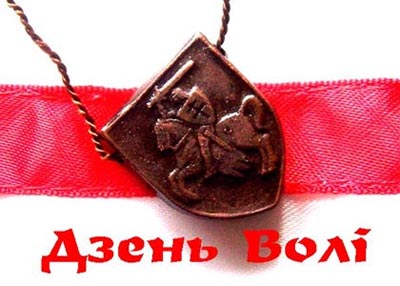Poland and Germany were both initiators and drivers of a New Eastern policy linked to the Eastern neighborhood and Russia/Soviet Union.
Uladzimir Matskevich: Belarusan society is in the state of passive protest

Freedom Day didn’t show the anti-war moods of the whole nation. 3-5 thousand Belarusans, who were at the demonstration on March 25, are not enough to consider them the antiwar stance of all Belarusans.
The results of the Freedom Day in the interview with the EuroBelarus Information Service voiced Uladzimir Matskevich, the head of the Board of the International Consortium “EuroBelarus”.
— On Freedom Day 3-5 thousand Belarusans went into the Minsk streets to protest against Russian occupation of Crimea and to defend Belarusan independence. Is it an appropriate response to the threat of being meddled in the Russia-Ukraine war?
— No, surely it is not enough. It is a good thing to remember about Ukrainian events at our traditional Freedom Day. But such number of people (five thousand, 20 thousand, 30 thousand) is not enough a fortiori to be called the voice of the whole nation, of the whole country.
Why did so few Belarusans go into the streets? It is a rhetorical question – Belarusans are reacting very passively to outside and inside threats over the last years.
— Belarusans are celebrating Freedom Day for more than 20 years, but Belarus had never been so close to the threat of losing its independence before. However, doesn’t the reaction of Belarusans show that they are neither afraid of Russian belligerence not of the Crimean scenario in Belarus?
— I don’t think it is so. Judging from the media, conversations and social networks we can say that these events have become everyone’s concern. Over the last years we see that Belarusans passively react to everything around them. We can get indignant at it, but this is our reality. Belarusan society is in the state of passive protest.
And the latest local election demonstrated how spread this passive protest is. The turnout is extremely low, and all attempts of authorities and Central Electoral Commission to falsify it were of little help.
— Absolutely peaceful action resulted in arrests of nine people, though only two of them were detained. How does that characterize Belarusan authorities?
— The behavior of the members of top brass adds to the passive state of the society.
All groups of population give no adequate reaction to the events, but only continuously reproduce old actions and act according to clichés. Both the situation inside and outside Belarus has changed, but the authorities can’t give and adequate sensible reaction to the changed world.
— Does it mean that during this “hot spring” we are to expect passiveness from Belarusans and trite behavior from the authorities?
— If there is no serious impetus that can influence the state of the society, we will face usual and trite forms of behavior.
Others
-
Uladzimir Matskevich: The sooner the "Union State" is denounced, the better for Belarus
Not only does the “Union State” undermine the establishment of civilized relations with Europe, but it hinders the possibility of normal relations between Belarus and Russia.
-
Uladzimir Matskevich: The regime can no longer control the situation in the country
The authorities are unable to prolong the social contract with the people: there is no way out of the social crisis.
-
Press release of the BNP in connection with the next round of the dialogue in the format of the EU-Belarus Coordination Group
Belarusan National Platform of the Eastern Partnership Civil Society Forum welcomes the dialogue process in the format of the EU-Belarus Coordination Group, the third round of which was held in Minsk on 3-4 April 2017.
-
Hennadiy Maksak: Europe must react adequately to the events in Minsk
A new wave of political repressions should make the EU return to tougher policy towards the Belarusan regime.








Comments
From farewell to a new Eastern policy and towards a new development
Poland and Germany were both initiators and drivers of a New Eastern policy linked to the Eastern neighborhood and Russia/Soviet Union.